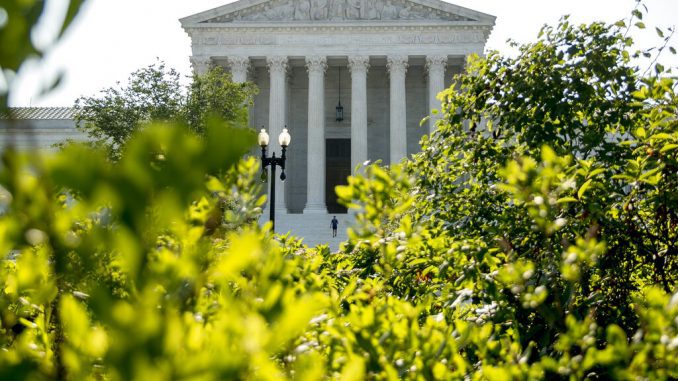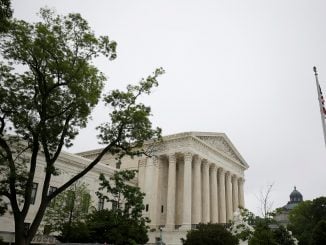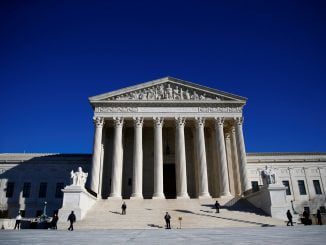
WASHINGTON, D.C. — More employers who cite religious or moral grounds can opt out of a contraceptive mandate, the Supreme Court ruled Wednesday, upholding Trump administration rules that let faith-based institutions opt out from actions that violate their beliefs.
The high court ruled 7-2 for the administration, which had made a policy change to allow some employers to opt out of providing the no-cost birth control required by the Obama-era health care law. Lower courts had previously blocked the Trump administration’s changes.
The ruling is a big election-year win for President Donald Trump, who counts on heavy support from evangelicals and other Christian groups for votes and policy backing.
The administration has the statutory authority to craft the rules, including “the contemporaneously issued moral exemption,” Justice Clarence Thomas wrote for a majority of the court.
Justice Ruth Bader Ginsburg dissented, saying, “Today, for the first time, the Court casts totally aside countervailing rights and interests in its zeal to secure religious rights to the nth degree.”
Separately on Wednesday, the Supreme Court sided with two Catholic schools in California in a decision underscoring that certain employees of religious schools, hospitals and social service centers can’t sue for employment discrimination. That ruling, too, was by 7-2, with Ginsburg and Justice Sonia Sotomayor dissented in both cases.
The court had ruled unanimously in 2012 that the Constitution prevents ministers from suing their churches for employment discrimination, but at that time the justices didn’t specifically define who counts as a minister. The case decided on Wednesday involved lay teachers whose contracts had not been renewed.
In the birth control case, two liberal justices who sided with the administration, Elena Kagan and Stephen Breyer, nonetheless suggested the legal fight over the Trump administration changes may not be over. Future administrations could also attempt changes.
Birth control has been a topic of contention since the health care law was passed. Initially, churches, synagogues and mosques were exempt from the contraceptive coverage requirement. The Obama administration also created a way by which religiously affiliated organizations including hospitals, universities and charities could opt out of paying for contraception, but women on their health plans would still get no-cost birth control. Some groups complained the opt-out process itself violated their religious beliefs.
That opt-out process was the subject of a 2016 Supreme Court case, but the court, with only eight justices at the time because of the death of Justice Antonin Scalia, didn’t decide the issue. It instead sent both sides back to see if they could work out a compromise.
After the Trump administration took office, officials announced a rule change that allows many companies and organization with religious or moral objections to opt out of covering birth control without providing an alternate avenue for coverage. But the change was blocked by courts after New Jersey and Pennsylvania challenged it.



